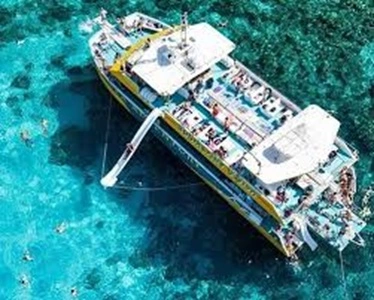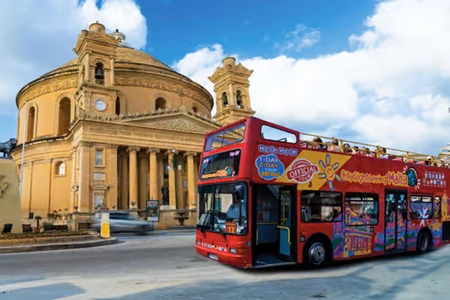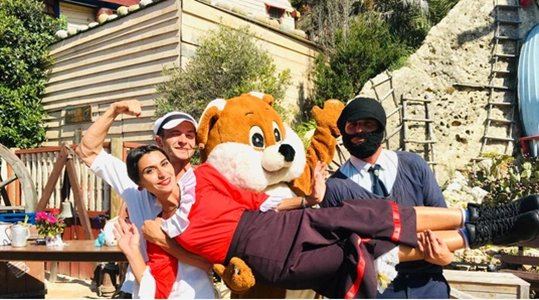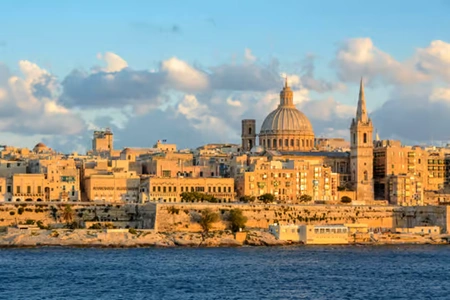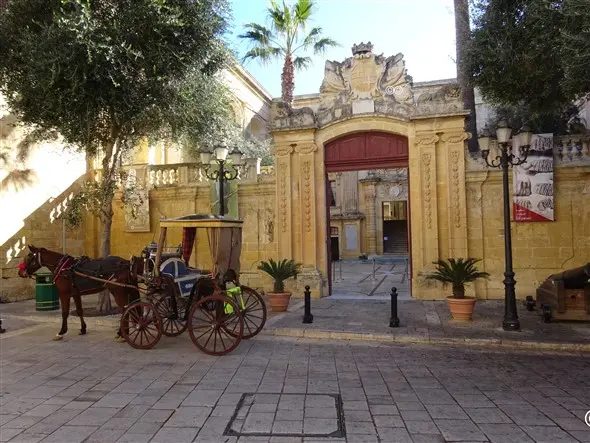
National Museum of Natural History / Palazzo Vilhena
The main purpose of the museum is to collect and preserve local historicaal flora and fauna.
Shown are local geology and paleontology, exotic mammals, human evolution, seacrops, shells, insects and birds. Using dioramas, different Maltese residential areas are shown, like local cliff dwelling areas of birds, traditional rubble walls and the diversity of animals which visit the valleys of the islands.
The L. Mizzi Hall is dedicated to minerals and only shows 850 pieces of stone and minerals and is a small part of the extensive collection of Lewis Mizzi. Attention is also paid to the use of raw materials in artworks and jewelry.
The museum also pays attention to the ecological importance of the islands Filfla, Fungus Rock, St. Paul’s Island and Comino. One can also find a large collection of birds and the largest squid which was caught in the Maltese waters.
Besides the impressive baroque style of the palace and the unique characteristics and details, the museum shows the various aspects of the wildlife of Malta, displays about geology and paleontology, squid and additionally also an exhibition about the Maltese waters and collections of birds, minerals and rocks.
HISTORY
Palazzo Vilhena is a
Magistral palace, built by a Grand Master of the Order of St John, Manoel de
Vilhena, between 1726 and 1728 and functioned as his summer palace. It was designed by the
French architect Charles François de Mondion, who was the main architect of the
reconstruction of Mdina after the earthquake of 1693.
The building is a prime example of French baroque. A previous
Grandmaster, Philipe Villiers de L’Isle-Adam had already modified part of the
palace for his own use, from the remains of the mediaeval castle Castellu di la Chitati, during the 1530s. This
was built on the former site of the Palazzo Giuratale, which housed the
Università, the local government of the old nobility of Mdina.
The area of the Palazzo Vilhena was already inhabited in the
Bronze Age. After the era of the Order of St John, the palace had a number of
functions. It was a hospital during the
cholera outbreak of 1837, and after that it became a sanatorium for the British
military.
Until 1956 it was known as the Connaught Hospital, after
Prince Arthur, Duke of Connought and Strathearn.
At present, since 1973, it is the National Museum of Natural
History, and is managed by Heritage Malta.
Opening hours | Tuesday to Sunday 9:00 - 17:00 |
Last admission | Advice 30 minutes before closing |
Closed | |
Ticket / admission fee | |
Adults (18-59 yrs) | € 5.00 |
Children (12-17 yrs) | € 3.50 |
| Infants (1-5 yrs) | Free |
Students | € 3.50 |
Seniors Citizens (60+) | € 3.50 |
Concessions | € 3.550 |
Address and street / location can be found on our map, click on Guide in the menu bar and you will get a map with markers. | |
Latest news and original website of the attraction / spot / advent | |
